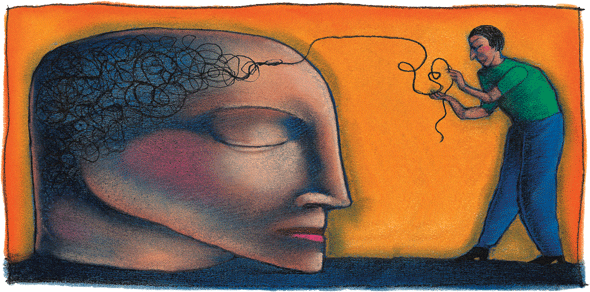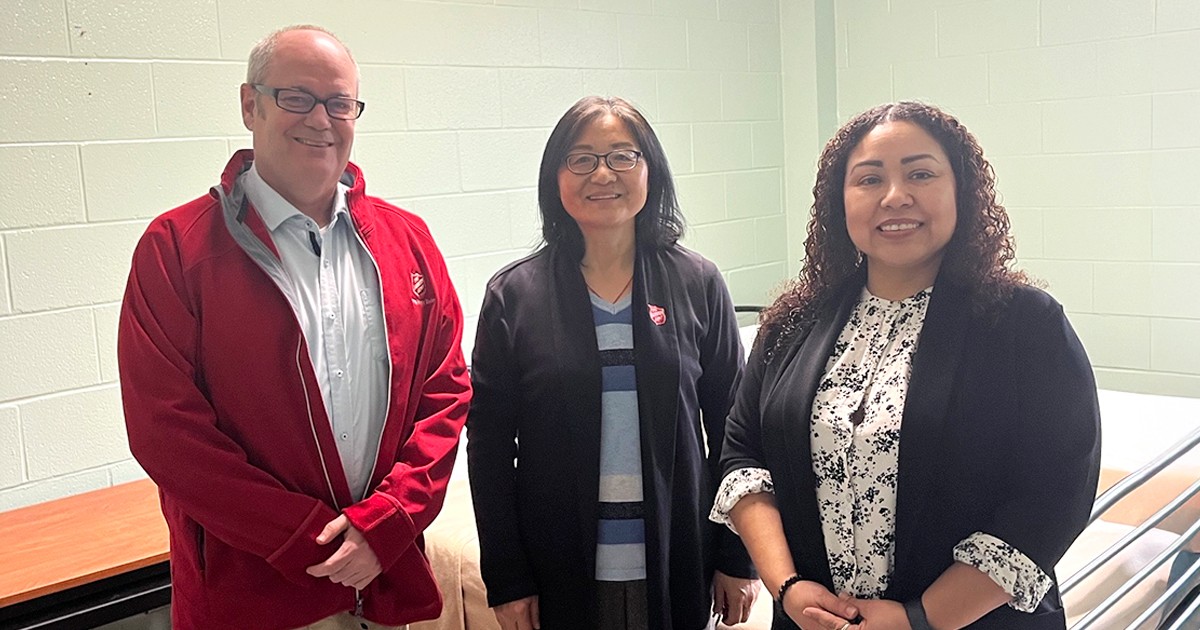 Dear Jim,
Dear Jim,
We live in exciting days, don't we? Science marches on. There are new developments, inventions and discoveries all the time. Sometimes they give us hope; sometimes they incite fear. And sometimes it could go either way, depending on your perspective.
Take, for example, a bit of science recently reported on the Toronto Star's website. Here's a development that can't help but elicit a response from every reader:
“Something horrible happens. A child is lost. A bomb goes off. A car goes out of control. And deep in the brain, in the lateral amygdala region, a scattered set of neurons come to life and begin to vibrate with fear. Through an ingenious set of experiments, a group of researchers at Toronto's Hospital for Sick Children have not only located these terror-laden brain cells in mice, but erased them―along with the frightening memories they stored.” (March 13, 2009)
You know where they are going with this. They want to start erasing human memories. The hope of the scientists and doctors involved is to erase disturbing memories that have resulted in post-traumatic stress disorder. Space-age therapy, it would seem.
The thought of such a thing initially set my neurons vibrating with fear! It just seemed fundamentally wrong. Don't our memories make us who we are? Aren't our personalities and temperaments stapled together by our experiences—both bad and good? And if memories are going to be erased at all, shouldn't that be God's business?
I have often said that the worst experiences of my own life have been the most important. My general perspective was woefully limited until a series of bad events occurred in my twenties. Those were hard years, to be sure, but they developed a deeper sense of empathy in me and widened my vision. Because of the ordeals endured, I feel I have a better understanding of other people, and I certainly have more compassion for the troubles of others. I can't say I'm glad of the things that happened to me (and sometimes because of me), but I can say that it was a vital period of character formation. I regret the circumstances, but I don't regret the results and I don't regret the memory.
But one must think outside her own experiences, right? So, I began to wonder about those whose trials were far greater than mine. I thought about people who were sexually victimized as children. I can hardly imagine what it would be like to have that kind of videotape playing in my head. However, I'm still not sure if the emotional pain that goes with those memories justifies having one's memory wiped. God created memory. We know that God doesn't shield us from undesirable events, nor does he clip the memory of those events out of our minds. If he doesn't do it, should we? I'm just not sure we are free to play in this arena for the sake of easing our personal suffering.
On the other hand, Jim, there may be a benefit to society here. I don't really understand the psychology behind it, but it is a fact that many people who are sexually abused as children carry on a cycle of abuse. Victims may turn into perpetrators while they are yet children, or it may happen when they are grown. If the whole experience was wiped from the brain of an abuse victim, wouldn't that mean that he or she would be less likely to become an abuser?
To erase memory for the sake of emotional comfort is one thing. To erase memory for the protection of other people may be—dare I say it?—a noble cause. What do you think?
Amy
Dear Amy,
There is no doubt that suffering is sometimes character-building, and that bad experiences often end up being among a person's most important moments. If I'm honest, I've probably allowed myself to have too easy a life. The Bible says that being a Christian means welcoming sufferings of certain kinds. In fact, the Apostle Paul goes as far as to say that he longs to share in Christ's sufferings (see Philippians 3:10).
I would be reluctant, however, to commend this kind of approach to someone who had suffered rape, torture, gruesome abuse or massive disaster. Wouldn't you? To quote Romans 8:28 to someone who had been brutalized, and withhold a therapy like the one the researchers at SickKids Hospital may be discovering, would feel like I was inflicting additional wounds.
Maybe there are some memories that are like gangrene—it's better that they be excised than left to kill the personality
What if we think of “memory erasing” as ethically similar to amputation surgery? Surgeons are very reticent to remove limbs even if they are seriously dysfunctional. But a gangrenous leg is different. It will kill the person if it is not removed, and so we think it should go. Maybe there are some memories that are like gangrene—it's better that they be excised than left to kill the personality.
Why the extreme caution? I think you've nailed the reason, Amy, when you say that in some ways our personalities are “stapled together” by our experiences. Memory gives cohesion and depth. It was William Faulkner who said, “The past is never dead. It's not even past.” I am who I am because of what I have been, and because I bring my past into my present through memory.
This is why we feel so deeply for people who are afflicted with Alzheimer's disease. They can't remember, and so it's like they are no longer there. When relatives talk painfully about “losing” Mom or Dad to dementia, they aren't just being metaphorical. (By the way, I was talking about ethics and Alzheimer's disease one time and afterwards a chaplain in the audience put me onto a fine pastoral theology book by David Keck called Forgetting Whose We Are. What a profound tragedy not only to forget your name, but to forget the God who names you.)
I know we've been focusing on the individual, but I'd like to shift gears and bring the matter of social or cultural memory into the picture. I'm troubled by the fact that we live in an age that is so intent on progress and the future that we can't see much value in history. We'd rather talk about not-yet-engineered G5 smartphones than about the Rosetta Stone.
I remember being impressed as a kid to discover that my father had memorized several books of the Bible. I don't know that many of us see the point of that anymore. In fact, I'm not sure I saw the real point of it. I think I am beginning to get it now. It's not just a way to show off and impress others with the fact that you can recite the Pentateuch. It's that you make the story of the people of the Bible your own story. You've said that memory doesn't just catalogue an individual's past experiences, it shapes their character. Similarly, a social memory isn't just a chronicle of past events; it's the way of creating multigenerational community.
That makes it very important to pay attention to what is memorialized. Too often the victors write the histories, and decide what really counts and what can be disposed of in what the Party in George Orwell's 1984 called the “memory hole.” I am ashamed at how the history of Canada—which has shaped my sense of what it is to be Canadian—has such a small and inferior place for what we now call First Nations people.
One of the most dynamic consequences of the Nazi Holocaust is that Jewish leaders such as Emil Fackenheim and Elie Wiesel have insisted that Hitler must not have a “posthumous victory.” They mean that Jews today must not assimilate into some other culture (and thereby effectively do Hitler's work of eliminating Jewry) but defiantly keep alive the faith and practices of their forebears such as Moses, Maimonides and Golda Meir.
At supper on the night before he was crucified, Jesus said, “Do this in remembrance of me.” I can't pretend to know all that he meant, but the fact that he made it an imperative really stands out for me today. Did he know that a time would come when societies like ours would be so focused on the future that they'd have to make a special effort to connect themselves with the past?
Jim
Dear Jim,
Yesterday I took a trip to Gettysburg, Pennsylvania, the most important battlefield of the American Civil War. I noticed that respect was given to troops on both sides of that war, and that really struck me. Communal memory, as you say, must be even-handed and never revisionist. Lessons are better learned when we consider the humanity on both sides of the battlefield, when we remember the men's deeds—both ugly and heroic. I'm not saying that right and wrong should be blurred or that one side's cause is never more noble than another's, but when we remember, let us remember fairly.
It may be right to lop off hideous, dangerous memories like a gangrenous limb. But I think we'd both conclude that only personal memories should be treated that way. Tragically, our schools and even our churches attempt the same feat against our corporate memory by rewriting history and teaching what is less than true. We will never avoid repeating the mistakes of the past if we are not given the chance to truly understand them.
Amy

 In this Talking It Over series, Dr. James Read, Executive Director of The Salvation Army Ethics Centre in Winnipeg, and Captain Amy Reardon, Editor of Young Salvationist, U.S.A. National Headquarters, dialogue about moral and ethical issues. Click here to read more debates in the Talking It Over series.
In this Talking It Over series, Dr. James Read, Executive Director of The Salvation Army Ethics Centre in Winnipeg, and Captain Amy Reardon, Editor of Young Salvationist, U.S.A. National Headquarters, dialogue about moral and ethical issues. Click here to read more debates in the Talking It Over series.









Leave a Comment